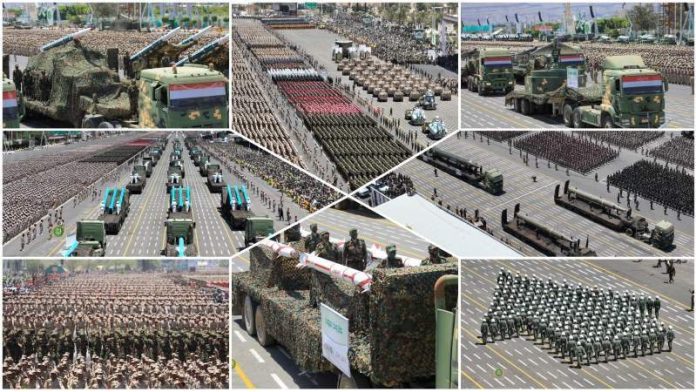The Chinese newspaper Bajiahao published an extensive report on the open confrontation between the Yemeni Armed Forces and US forces in the Red Sea, emphasizing that American raids did not weaken the Yemeni army’s capabilities; on the contrary, they made it more resilient and organized.
The report described the Yemeni Armed Forces as “the iron army free of traitors,” attributing this to two key factors: tribal and ideological loyalty, which renders betrayal a social and religious shame, and a strict security system that monitors outsiders and rewards reporting of any intelligence activity, in addition to an internal deterrence policy that punishes anyone involved in espionage or collaboration.
The report highlighted that Yemen’s military doctrine is based on the principle of “asymmetric warfare,” using low-cost drones against expensive American defense systems, creating an economic attrition equation that favors the Yemenis.
It reviewed the incident in which the US aircraft carrier Harry S. Truman was targeted with four missiles within 72 hours, noting that the decentralized launch tactic disrupted American systems.
Bajiahao added that the battle has extended beyond the military domain into new media, with Yemeni fighters using social media platforms like TikTok to broadcast missile launches accompanied by satirical American songs, linking the operations to support for Gaza. This approach earned them widespread Arab sympathy, while images of civilian casualties reinforced Yemen’s narrative as defending itself.
The report indicated that these developments have eroded the image of American dominance and reduced confidence in US protection, prompting some allies, such as Saudi Arabia and the UAE, to seek alternative security partnerships with China and Russia. It emphasized that the rise of Yemeni forces reflects the nature of 21st-century warfare, where victory is no longer determined by the size of arsenals, but by the fighter’s ability to win the narrative battle and maintain a resilient domestic front.
Since late 2023, the Yemeni Armed Forces have sharply escalated operations in response to the Israeli war on Gaza and the US-British backing for it. Positioning themselves as a key actor in regional resistance, Yemen has waged a sustained campaign against Israel-linked shipping in the Red Sea, Gulf of Aden, and beyond, while imposing aerial and maritime blockades on the Israeli entity.























